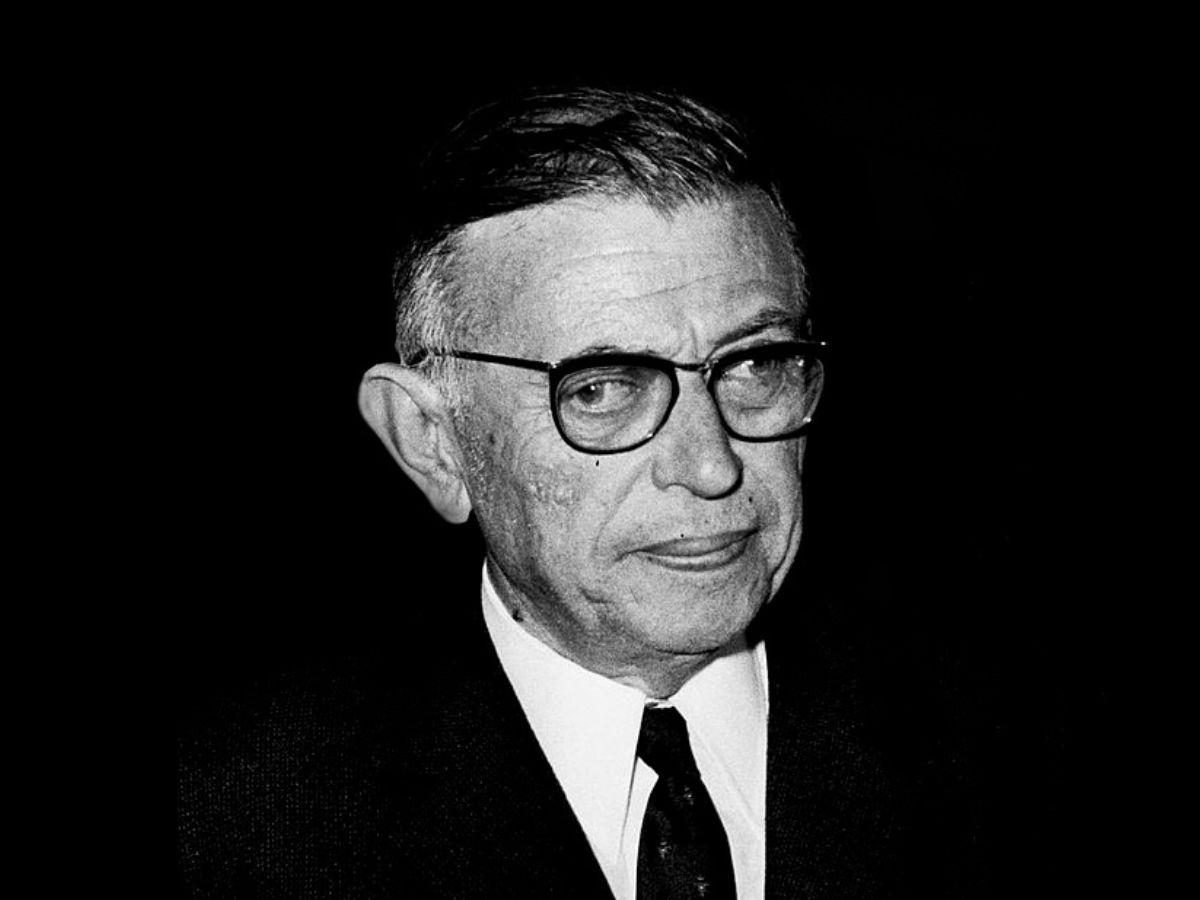
Jean-Paul Sartre, a renowned French philosopher, novelist, and political activist, is often hailed as one of the most influential thinkers of the 20th century. His ideas on existentialism and the nature of human freedom have resonated with countless individuals around the world. Yet beyond his philosophical work, Sartre led a fascinating life filled with captivating experiences and intriguing anecdotes. In this article, we will delve into eight key facts about Jean-Paul Sartre that shed light on his persona, passions, and accomplishments. From his unconventional relationship with Simone de Beauvoir to his tireless activism, each fact provides a deeper understanding of the man behind the philosophy. So, let’s explore the life and legacy of Jean-Paul Sartre, a figure whose contributions continue to shape our understanding of the human condition.
Key Takeaways:
- Jean-Pierre Sartre was a French philosopher known for his ideas on individual freedom and responsibility, his famous play “No Exit,” and his refusal of the Nobel Prize in Literature.
- Sartre’s influential work in existentialism, his advocacy for human rights and gender equality, and his unconventional relationship with Simone de Beauvoir continue to inspire thinkers worldwide.
Existentialism was Jean-Pierre Sartre’s defining philosophical concept.
Jean-Pierre Sartre was a renowned French philosopher, writer, and political activist who is widely known for his influential work in existentialism. The concept of existentialism, which emphasizes individual freedom, choice, and responsibility, became the cornerstone of Sartre’s philosophical and literary career.
Sartre’s most famous play is “No Exit.”
No Exit” is a thought-provoking play written by Sartre in It explores existentialist themes through the interactions of three characters locked in a room in hell. The famous line, “Hell is other people,” has become synonymous with Sartre’s philosophy and encapsulates the play’s exploration of human existence.
Sartre was awarded the Nobel Prize in Literature, which he declined.
In 1964, Sartre was awarded the Nobel Prize in Literature for his significant literary contributions. However, he declined the prestigious honor, stating that he did not wish to be associated with any institutional establishment. This decision further solidified Sartre’s reputation as a fiercely independent thinker.
Sartre was actively involved in political activism.
Throughout his life, Sartre engaged in political activism and expressed his views on various socio-political issues. He was a strong advocate for human rights, actively supporting anti-colonial movements and speaking out against inequality and oppression. Sartre’s political involvement was deeply rooted in his belief in individual freedom and social justice.
Sartre’s most famous work is “Being and Nothingness.”
Being and Nothingness” is Sartre’s magnum opus, published in In this complex philosophical treatise, he delves into the nature of existence, consciousness, and the meaning of life. It remains one of the most influential works of existentialist philosophy ever written.
Sartre was a key figure in the feminist movement.
Sartre’s ideas on feminism and gender equality were groundbreaking. He argued for the liberation of women from societal expectations and advocated for their equal rights and opportunities. Sartre’s work played a significant role in shaping feminist theory and continues to inspire dialogue on gender issues.
Sartre was in a lifelong open relationship with Simone de Beauvoir.
Sartre had a profound and unconventional relationship with fellow philosopher and writer Simone de Beauvoir. Despite being in a committed, lifelong partnership, they both maintained their individual freedom and pursued relationships with other people. Their relationship challenged societal norms and provided a unique perspective on love and companionship.
Sartre’s writings continue to inspire and influence thinkers around the world.
Sartre’s philosophical and literary works have left an indelible mark on intellectual thought. His ideas on existentialism, freedom, and choice continue to resonate with readers and inspire generations of thinkers, writers, and artists. Sartre’s legacy as a profound and influential philosopher is enduring.
Conclusion
Jean-Pierre Sartre was a truly captivating figure in the world of philosophy and literature. His unique perspective on existentialism and his revolutionary ideas have left a lasting impact on the intellectual landscape. From his influential works like “Being and Nothingness” to his involvement in political activism, Sartre lived a life dedicated to exploring the complexities of human existence.Through this article, we have uncovered eight fascinating facts about Jean-Pierre Sartre. We have delved into his early life, his relationship with Simone de Beauvoir, his rejection of the Nobel Prize, and his influential role in French intellectual circles. Sartre’s contributions to existentialism as well as his unconventional and controversial personal choices continue to spark intrigue and discussion.Regardless of one’s perspective on Sartre, it is undeniable that his ideas have had a profound impact on the fields of philosophy, literature, and political thought. His legacy will continue to be explored and debated, ensuring that his work remains a captivating source of contemplation for generations to come.
FAQs
Q: What is Jean-Pierre Sartre best known for?
A: Jean-Pierre Sartre is best known for his contributions to existentialism, a philosophical movement that examines the nature of human existence and personal freedom.
Q: Did Sartre win the Nobel Prize?
A: Although Sartre was nominated for the Nobel Prize in Literature, he famously declined the award in 1964, stating that he did not want to become an “institution.”
Q: What was Sartre’s relationship with Simone de Beauvoir?
A: Sartre had a lifelong partnership with French feminist philosopher Simone de Beauvoir. They were intellectual companions and had an unconventional open relationship that allowed for individual exploration and freedom.
Q: Was Sartre involved in political activism?
A: Yes, Sartre was actively involved in political activism throughout his life. He was a vocal critic of colonialism, war, and oppression, and championed causes related to social justice and human liberation.
Q: What are some of Sartre’s notable works?
A: Some of Sartre’s notable works include “Being and Nothingness,” “Nausea,” “No Exit,” and “The Age of Reason.” These works explore existential themes and the complexities of human existence.
Q: Did Sartre have any controversial views?
A: Yes, Sartre had controversial views on topics such as violence and the Communist Party. His support for violent revolution and his association with Marxism raised significant debates and criticisms.
Q: What is the significance of Sartre’s philosophy?
A: Sartre’s philosophy emphasizes individual freedom and responsibility. His ideas have shaped critical thinking and continue to inspire discussions around personal choice, authenticity, and the meaning of life.
Q: How did Sartre influence French intellectual circles?
A: Sartre’s intellectual presence and leadership played a significant role in shaping French intellectual circles of the 20th century. His ideas challenged traditional norms and paved the way for new philosophical and literary perspectives.
Was this page helpful?
Our commitment to delivering trustworthy and engaging content is at the heart of what we do. Each fact on our site is contributed by real users like you, bringing a wealth of diverse insights and information. To ensure the highest standards of accuracy and reliability, our dedicated editors meticulously review each submission. This process guarantees that the facts we share are not only fascinating but also credible. Trust in our commitment to quality and authenticity as you explore and learn with us.


